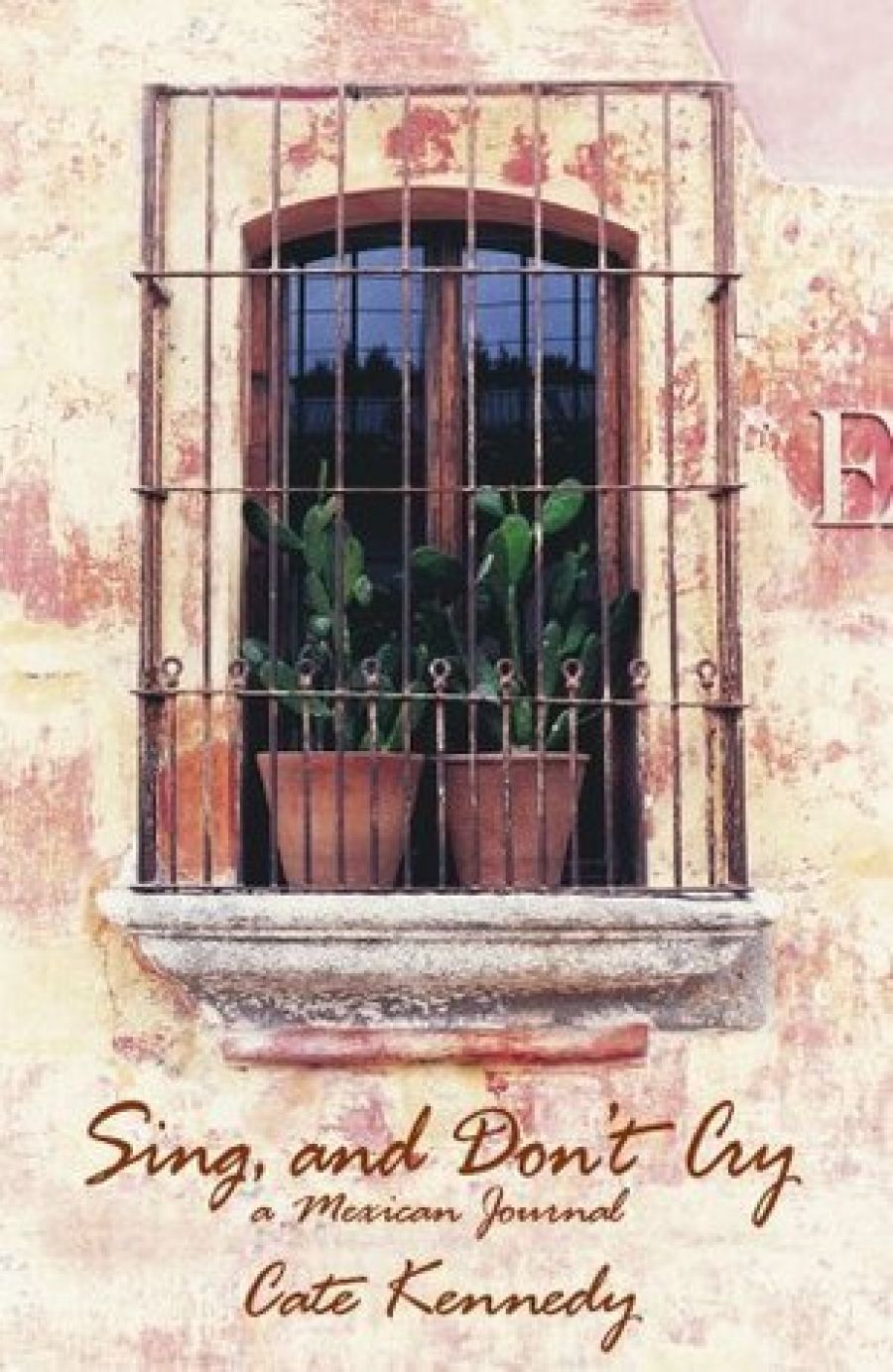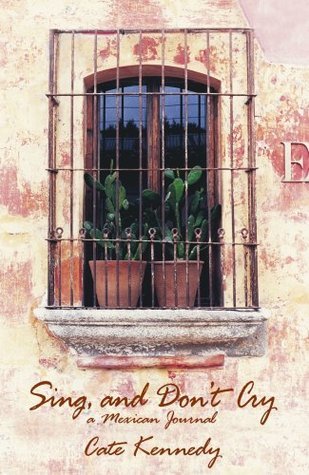
- Free Article: No
- Contents Category: Memoir
- Review Article: Yes
- Article Title: The kindness of strangers
- Online Only: No
- Custom Highlight Text:
‘There is no pleasure in travelling,’ Albert Camus jotted in his notebook while in the Balearic Isles one summer. ‘It is more an occasion for spiritual testing.’ Pleasure, he argued, leads us away from ourselves; travel, which he considered part of the eternal search for ‘culture’, always brings us back to ourselves.
- Book 1 Title: Sing, and Don't Cry
- Book 1 Subtitle: A Mexican journal
- Book 1 Biblio: Transit Lounge, $29.95 pb, 301 pp
- Book 1 Cover Small (400 x 600):

- Book 1 Cover (800 x 1200):

Much of the charm of Sing, and Don’t Cry lies in hearing Kennedy’s tone gradually relax. She grows warmer and more responsive as her eye is caught by the smaller, knottier, quotidian concerns of the people about her. Her observations become more attuned to her surroundings: the intractable poverty, the harsh environment and the optimistic, hard-working and generous townspeople. The many set pieces describing the proud campesinos and the desert landscape are the most accomplished sections of the book.
Kennedy watches in awe the televised excesses of Holy Week, which culminate in the passion plays during Semana Santa. Still trying to make sense of this religious fervour, she steps out of her front door only to be swept up in a strangely pagan fiesta celebrating Christ’s resurrection, and begins dancing and whooping at the fireworks along with the locals. Her first experience of the dusk ritual of the paseo, when everyone in the community comes out after work to stroll about the zócalo, the town plaza, and to greet their neighbours, is similarly enlightening. Initially shocked at the easy intimacy of the local people, observing the absence of guarded formality or any suspicion of her as an outsider, Kennedy realises how unaccustomed she is to kindness from strangers.
In many ways, this book is a lament for the loss of the social glue that binds individuals together into a community. Kennedy admits to a ‘wounding little stab of grief for my own society’. She ruminates on the lack of a strong sense of cultural integrity and connection in contemporary Australia. ‘Instead of strolling on the paseo,’ she writes, ‘people are racing down freeways in a perpetual frenzy of going somewhere else, striding along talking into their mobile phones, or walking aimlessly through shopping hypermarts for recreation.’
Kennedy writes about what she sees with a satisfying depth. Confronted with the poverty of the campesinos, she struggles with feelings of guilt and impotence. The only practical skill she feels she possesses is as a consumer, handing out pesos to begging children, or patronising the local produce stalls and trying to distribute her disproportionate wealth as evenly as she can. Her frustrated attempts to find a broader solution contrasts with the attitude of the locals, who laugh at the Western arrogance that assumes that the world will bend to the will of an individual. She applies her smattering of Zen philosophy to the elastic sense of time signified by mañana, noting that the Spanish word for ‘wait’ is the same as the word for hope. It is when she eventually succumbs to the Mexican concept of time and their stoic approach to external events that things become interesting. A whole new filter is superimposed over a range of cultural and philosophical certainties. On her return to Australia, Kennedy is unable to settle. She feels increasingly distressed by a society she perceives as being characterised by thoughtless consumption and selfish individualism.
When Westerners write of their experiences in the developing world, there is always the danger that the locals become fodder for a crude display of cultural superiority. Kennedy becomes aware of the pitfalls of romanticising the peasants’ life. She is initially susceptible to gauzy clichés about the nobility of poverty, only to wheel around and face these platitudes head-on. She unpacks their components and acknowledges some painful cultural and personal truths. She is frank about her own failings and misconceptions, and dogged in her examination of her own culture as it is thrown into relief by Mexican customs. Sing, and Don’t Cry is an eloquent portrait of how lived experience can inform and alter a person’s intellectual and spiritual alignment. Kennedy’s desire for an investigation of her inner life makes this book a profound and evocative document of a particular place.


Comments powered by CComment